
Jess
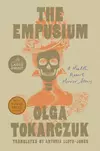
I think having an intersex character who is sort of saved by their intersex-ness is a really interesting premise for a story. I liked this element. I sort of understand why it was not really mentioned until close to the end/slowly alluded to and not frequently addressed head-on. That being said the book didn't feel like a horror story at all, and all of the misogyny could have been less heavy-handed. I feel like we got way too much of the patients' chatter and less plot. I also think that the use of the narrator as the spirits themselves could have been more interestingly developed...
I think having an intersex character who is sort of saved by their intersex-ness is a really interesting premise for a story. I liked this element. I sort of understand why it was not really mentioned until close to the end/slowly alluded to and not frequently addressed head-on. That being said the book didn't feel like a horror story at all, and all of the misogyny could have been less heavy-handed. I feel like we got way too much of the patients' chatter and less plot. I also think that the use of the narrator as the spirits themselves could have been more interestingly developed...
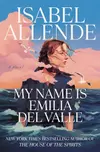
I love Allende, but there was much in this work that missed the mark for me. There is so much potential in the premise, setting, and even the character of Emilia, but I was disappointed. Though I am glad that I kept going and finished the book, it was a sluggish journey until about halfway through part 3. There the story picks up but many of the things that I didn't like about the beginning continued. I felt as if there were many pieces to the story that were brushed over for the sake of setting the plot for the later portions of the book. Emilia's life is a series of incredibly lucky turns of events, but that luck isn't sat with in a meaningful way. Her career into dime novels and journalism both sort of just happen to her, a woman in 1890s. Though we get the first person account of Emilia through the entire story, I experienced no real character development. When I got to the point where she was to be executed I started to re-evaluate my understanding of her character (and here is where I started enjoying the book truly) because I thought we readers were being given a chance to reflect on this luck and whiteness and hubris. But no... she continues to stumble through survival (and continuing into perilous situations because she is "so brave" and everything will continue to work out for her ad infinitum).
That being said, as a work of historical fiction I did feel I learned more about this time and place and that was meaningful to me. The pieces toward the end of the book that touched on indigeneity in Chile and the supernatural beauty of un-colonized land were my favorite. I would have loved if we got a more in-depth look at those parts (especially the epilogue... really glossed over the fact that Emilia was able to form these life-sustaining relationships yet we don't really get to experience any of that as a reader).
I love Allende, but there was much in this work that missed the mark for me. There is so much potential in the premise, setting, and even the character of Emilia, but I was disappointed. Though I am glad that I kept going and finished the book, it was a sluggish journey until about halfway through part 3. There the story picks up but many of the things that I didn't like about the beginning continued. I felt as if there were many pieces to the story that were brushed over for the sake of setting the plot for the later portions of the book. Emilia's life is a series of incredibly lucky turns of events, but that luck isn't sat with in a meaningful way. Her career into dime novels and journalism both sort of just happen to her, a woman in 1890s. Though we get the first person account of Emilia through the entire story, I experienced no real character development. When I got to the point where she was to be executed I started to re-evaluate my understanding of her character (and here is where I started enjoying the book truly) because I thought we readers were being given a chance to reflect on this luck and whiteness and hubris. But no... she continues to stumble through survival (and continuing into perilous situations because she is "so brave" and everything will continue to work out for her ad infinitum).
That being said, as a work of historical fiction I did feel I learned more about this time and place and that was meaningful to me. The pieces toward the end of the book that touched on indigeneity in Chile and the supernatural beauty of un-colonized land were my favorite. I would have loved if we got a more in-depth look at those parts (especially the epilogue... really glossed over the fact that Emilia was able to form these life-sustaining relationships yet we don't really get to experience any of that as a reader).
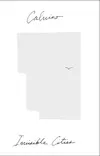
Calvino's prose is always a fascinating leap into another world; a world of poetry, absurdity, and bewilderment. Invisible Cities contains bite-sized probes into the worlds of impossible places that Marco Polo describes to Kublai Khan as they wander about a palace garden pontificating on the nature of life, communication, and existence. Enjoyable, delightful, sometimes funny, sometimes disturbing. A great read.
Calvino's prose is always a fascinating leap into another world; a world of poetry, absurdity, and bewilderment. Invisible Cities contains bite-sized probes into the worlds of impossible places that Marco Polo describes to Kublai Khan as they wander about a palace garden pontificating on the nature of life, communication, and existence. Enjoyable, delightful, sometimes funny, sometimes disturbing. A great read.
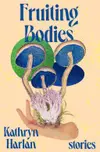
Short story compilations are not always my bag but I truly enjoyed this. Each story had a different way at pulling emotions and reflections out of me, at times like teeth. Meditations on family, girlhood, the difficulty of relationships, the inevitability of heartaches and disappointments. The style ranges from fantasy to magical realism. I am usually more drawn to magical realism than high fantasy, but one of the most impactful stories for me was also he most high-fantasy (the fiddler). The most impactful was definitely Is This You? Which made me feel... everything.
Short story compilations are not always my bag but I truly enjoyed this. Each story had a different way at pulling emotions and reflections out of me, at times like teeth. Meditations on family, girlhood, the difficulty of relationships, the inevitability of heartaches and disappointments. The style ranges from fantasy to magical realism. I am usually more drawn to magical realism than high fantasy, but one of the most impactful stories for me was also he most high-fantasy (the fiddler). The most impactful was definitely Is This You? Which made me feel... everything.
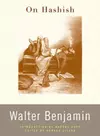
I decided to read this after finishing the Correspondence of Walter Benjamin because I was intrigued by the little bits of references to these protocols in the letters. WB is such a delightful thinker and it is interesting to see that shine through even in states of complete intoxication. There are times when he manages to make extremely layered literary puns that are genuinely hilarious. Of most interest to me is the implications that these experiments had for his understanding of experience philosophically. (Something I will certainly keep ruminating on).
I decided to read this after finishing the Correspondence of Walter Benjamin because I was intrigued by the little bits of references to these protocols in the letters. WB is such a delightful thinker and it is interesting to see that shine through even in states of complete intoxication. There are times when he manages to make extremely layered literary puns that are genuinely hilarious. Of most interest to me is the implications that these experiments had for his understanding of experience philosophically. (Something I will certainly keep ruminating on).

Considering I finished this book in a week, I was brought into this world fairly quickly, though disoriented. What Pynchon achieves with an artful use of language (the man can write a paragraph, for sure) he disappoints with sloppy plot. (is he postmodern/post-structuralist... or just bad at structure?). A lot of memorable character-building and funny one-liners are juxtaposed with a general creepiness and relatively anticlimactic ending.
Considering I finished this book in a week, I was brought into this world fairly quickly, though disoriented. What Pynchon achieves with an artful use of language (the man can write a paragraph, for sure) he disappoints with sloppy plot. (is he postmodern/post-structuralist... or just bad at structure?). A lot of memorable character-building and funny one-liners are juxtaposed with a general creepiness and relatively anticlimactic ending.

The adventures of huckleberry fin is an interesting book because it displays a grim, dystopian society through the bubblegum-shaded glasses of boyish fun. In that way, it’s a very important insight into the collective American psyche.
This book is so much better than that. I would say that the first third or so follows the huckleberry fin plot told through Jim’s perspective, and where it branches off is much more interesting, sad, real. The story holds a mirror up to the ugliest, most vile realities of American slavery. Everett consistently created devices for reflection on the nature of identity, language, double consciousness, and many other philosophical concepts throughout the book. When he does so, it is usually through the incredibly insightful titular character’s musings as he tumbles through his odyssey. I particularly loved Jim/Jame’s (towards the end we see him lean into James more intentionally) dream conversations with different Enlightenment philosophers.
There was a lot of violence, racism, sexual violence, slurs, and terrible things said and done throughout the book, which can be really difficult to hear/read (audiobook version was still a really good way to experience this story, but it’s very visceral and a little nauseating at times for its portrayal of deeply brutal historical realities).
The adventures of huckleberry fin is an interesting book because it displays a grim, dystopian society through the bubblegum-shaded glasses of boyish fun. In that way, it’s a very important insight into the collective American psyche.
This book is so much better than that. I would say that the first third or so follows the huckleberry fin plot told through Jim’s perspective, and where it branches off is much more interesting, sad, real. The story holds a mirror up to the ugliest, most vile realities of American slavery. Everett consistently created devices for reflection on the nature of identity, language, double consciousness, and many other philosophical concepts throughout the book. When he does so, it is usually through the incredibly insightful titular character’s musings as he tumbles through his odyssey. I particularly loved Jim/Jame’s (towards the end we see him lean into James more intentionally) dream conversations with different Enlightenment philosophers.
There was a lot of violence, racism, sexual violence, slurs, and terrible things said and done throughout the book, which can be really difficult to hear/read (audiobook version was still a really good way to experience this story, but it’s very visceral and a little nauseating at times for its portrayal of deeply brutal historical realities).
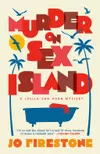
This book was a very silly murder mystery where the mystery takes a backseat to the jokes. The ending is a bit slapped together, but it was an enjoyable and quick read. The audiobook, read by the author, is the way to go for this one.
This book was a very silly murder mystery where the mystery takes a backseat to the jokes. The ending is a bit slapped together, but it was an enjoyable and quick read. The audiobook, read by the author, is the way to go for this one.
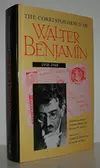
This collection of letters took me on a journey I was not, perhaps could never be, prepared for. What a truly spectacular mind the world lost in 1940. Watching Benjamin develop as a thinker, a friend, a loved one... through his own interpersonal words felt like an intimate glimpse into this man's soul. Witty, determined, flawed. I genuinely, in this moment and for the last several hundred pages, am mourning a real loss across time and space.
This collection of letters took me on a journey I was not, perhaps could never be, prepared for. What a truly spectacular mind the world lost in 1940. Watching Benjamin develop as a thinker, a friend, a loved one... through his own interpersonal words felt like an intimate glimpse into this man's soul. Witty, determined, flawed. I genuinely, in this moment and for the last several hundred pages, am mourning a real loss across time and space.
Updated a reading goal:
Read 40 books by December 31, 2025
Progress so far: 25 / 40 63%
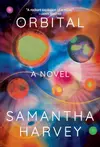
This is a very well written reflective piece about space travel in the age of billionaires. It is short, and hardly anything happens. I enjoyed listening to it, but it took me a long time to get through because nothing really pulled me in.
This is a very well written reflective piece about space travel in the age of billionaires. It is short, and hardly anything happens. I enjoyed listening to it, but it took me a long time to get through because nothing really pulled me in.













